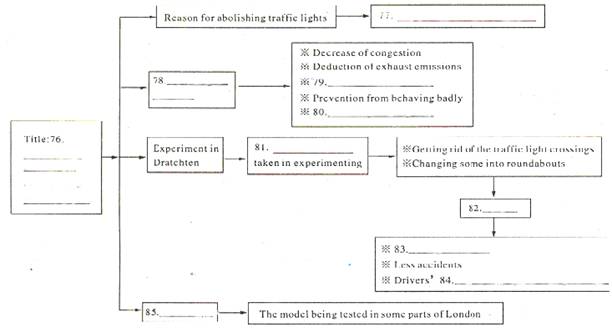题目内容
There are two types of people in the world. Although they have equal degrees of health and wealth and other comforts of life, one becomes happy, the other becomes miserable. This arises from the different ways in which they consider things, persons, and events, and the resulting effects upon their minds. The people who are to be happy fix their attention on the conveniences of things, the pleasant conversation, the well-prepared dishes, the goodness of the wines, the fine weather. They enjoy all the cheerful things. Those who are to be unhappy think and speak only of the contrary things. Therefore, they are continually dissatisfied. By their remarks, they ruin the pleasures of society, offend many people, and make themselves disagreeable everywhere. If this turn of mind were founded in nature, such unhappy persons would be the more to be pitied. The tendency to criticize and be disgusted is perhaps taken up originally by imitation. It grows into a habit, unknown to its possessors. The habit may be strong, but it may be cured when those who have it are convinced of its bad effects on their interests and tastes. I hope this little warning may be of service to them, and help them change this habit. Although in fact it is chiefly an act of the imagination, it has serious consequences in life, since it brings on deep sorrow and bad luck. Those people offend many others, nobody loves them, and no one treats them with more than the most common politeness and respect, and scarcely that. This frequently puts them in bad temper and draws them into arguments. If they aim at obtaining some advantage in rank or fortune, nobody wishes them success. Nor will anyone stir a step or speak a word to favor their hopes. If they bring on themselves public disapproval, no one will defend or excuse them, and many will join to criticize their misconduct. These people should change this bad habit and condescend(俯就,屈尊)to be pleased with what is pleasing, without worrying needlessly about themselves and others. If they do not, it will be good for others to avoid any contact with them. Otherwise, it can be disagreeable and sometimes very inconvenient, especially when one becomes mixed up in their quarrel.
1. People who are unhappy______________.
A. always consider things a little bit differently from others
B. usually are influenced by the results of certain things
C. can discover the unpleasant part of certain things
D. usually have a fault-finding habit
2. People who are happy______________.
A. are richer than others B. are in better health than others
C. usually are pleased with what is pleasing D. usually are better at imagination than others
3. Which of the following statements is NOT true according to the passage?
A. We should pity all such unhappy people.
B. Such unhappy people are critical about everything.
C. If such unhappy people recognize the bad effects of the habit on themselves, they may get rid of it.
D. The bad habit of such unhappy people may bring them misfortune.
4."Scarcely that" in Paragraph 3 means_____________.
A. just like that B. almost not like that
C. more than that D. not at all like that
5. If such unhappy persons don't change their bad behavior, the author's solution to the problem is that_____________.
A. people should avoid contact with them
B. people should criticize their misconduct
C. people should help them recognize the bad effects of the habit
D. people should show no respect and politeness to them
1—5 DCABA
$selection$

